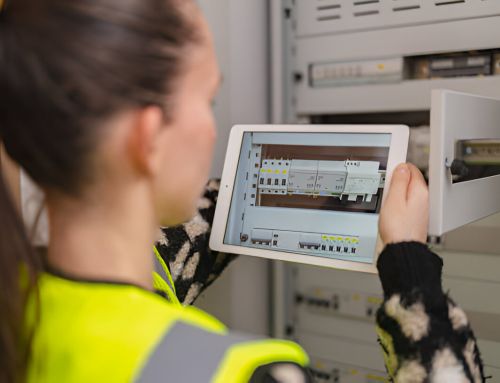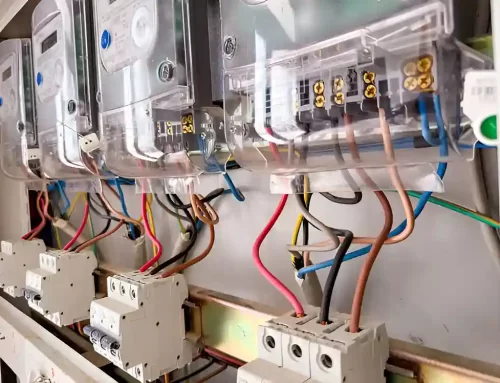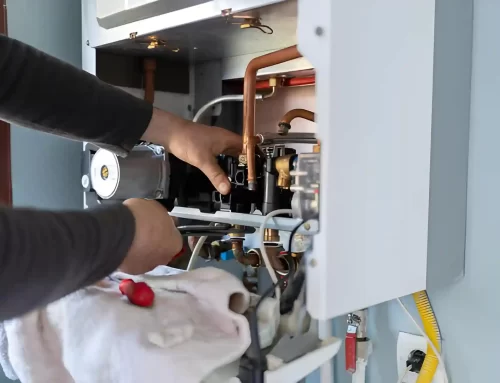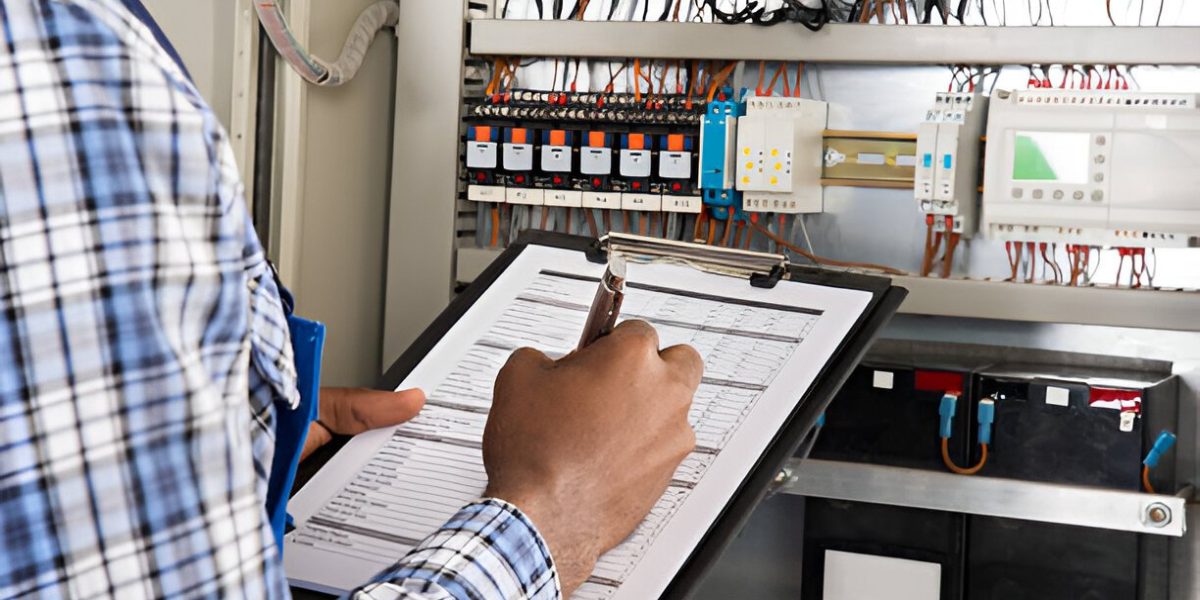
The cost of EICR certificate in the UK varies markedly based on several factors. Homeowners and landlords must consider property size, location, and the complexity of the electrical system. Understanding these elements is vital for making informed decisions. As compliance becomes more important, many may wonder about the implications of these costs. What are the possible consequences of neglecting this essential certification?
Key Takeaways
- The cost of EICR certificate for homeowners typically ranges from £100 to £300, while landlords face similar prices for each rental unit.
- Commercial properties incur higher costs, ranging from £150 to £500, depending on the complexity of electrical systems.
- Factors influencing costs include property size, electrical system condition, geographical location, and urgency of the inspection.
- Additional costs may arise from necessary repairs, follow-up inspections, travel fees, and documentation for the EICR certificate.
- Regular EICR inspections help prevent larger financial penalties and ensure compliance with safety regulations and insurance requirements.
What Is an EICR Certificate and Why Is It Needed?
An EICR certificate, or Electrical Installation Condition Report, serves as an important document that assesses the safety and condition of electrical installations in residential and commercial properties.
It is essential for identifying potential hazards, guaranteeing compliance with safety regulations, and protecting both occupants and properties from electrical risks. The report is generated following a thorough inspection by a qualified electrician, who evaluates various aspects, including wiring, sockets, and electrical components.
Landlords are legally required to obtain an EICR certificate every five years for rental properties, while homeowners may choose to have one conducted to verify their installations are safe.
An EICR highlights any deficiencies that need addressing, allowing for timely repairs and upgrades. By having this report, property owners demonstrate their commitment to safety and can avoid potential legal issues or fines associated with non-compliance.
Ultimately, an EICR certificate is essential for maintaining safe electrical systems.
Understanding the Factors That Affect the Cost of EICR Certificate
While various factors influence the cost of an EICR certificate, understanding these elements can help property owners make informed decisions.
The size of the property considerably impacts the price, as larger homes typically require more extensive inspections.
The condition of the electrical system also plays a vital role; older or more complex systems may necessitate additional time and resources for assessment.
Geographical location can affect costs, with services in urban areas often being pricier than in rural regions due to demand and availability of qualified electricians.
Additionally, the choice of electrician or inspection service can lead to varying prices, as some may offer more thorough packages or warranties.
Finally, the urgency of the inspection may incur extra charges, especially if expedited service is requested.
Understanding these factors can assist homeowners and landlords in budgeting effectively for their EICR certificate.
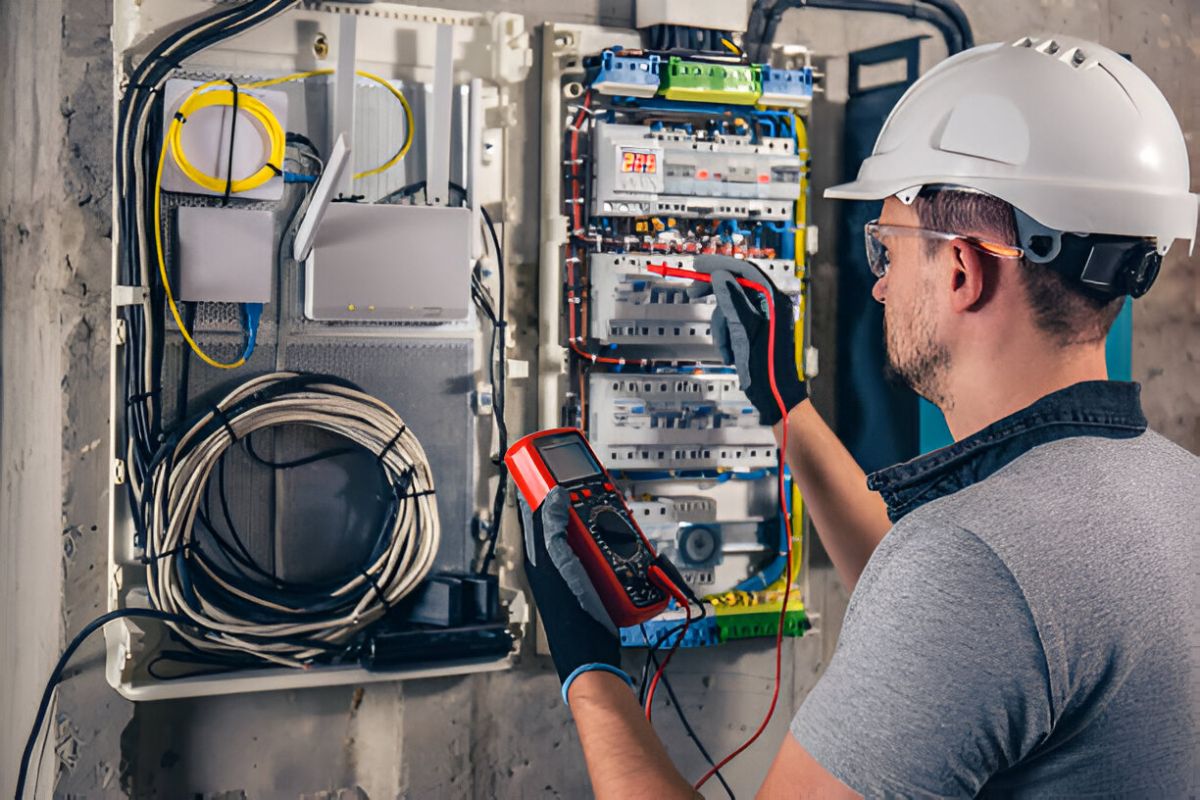
Average Cost of EICR Certificate for Homes and Rental Properties
The average cost of EICR certificate for homes and rental properties varies considerably, depending on various factors. Typically, homeowners can expect to pay between £100 and £300 for the assessment, while landlords may incur similar costs for each rental unit.
Factors influencing the price include the size of the property, the complexity of the electrical system, and the experience level of the electrician conducting the inspection. Larger homes or properties with more extensive electrical installations may incur higher fees.
Additionally, some providers may offer package deals for multiple properties, potentially reducing costs for landlords managing several units.
Homeowners and landlords must obtain quotes from multiple certified electricians to guarantee competitive pricing and quality service.
Regular inspections are essential for safety and compliance, and investing in an EICR certificate is a necessary expense for those in the housing market.
Cost of EICR Certificate for Commercial Premises
The cost of EICR certificate for commercial premises can differ considerably from residential properties. Typically, the price of an EICR for commercial buildings ranges from £150 to £500, influenced by various factors such as the type of business, the complexity of the electrical systems, and the size of the premises.
Unlike residential inspections, commercial properties often have more extensive electrical installations, necessitating detailed assessments that may result in higher fees.
Additionally, the nature of the business can impact costs. For example, a retail outlet may have different requirements compared to a manufacturing facility, which might involve more intricate electrical work.
Business owners need to obtain quotes from certified electricians and verify that the chosen service provider is experienced in commercial electrical inspections.
Ultimately, investing in a thorough EICR certificate is essential for maintaining safety and compliance within commercial environments.
Why Property Size Influences the Cost of EICR Certificate
As the size of a property increases, so does the complexity and extent of its electrical systems, which can greatly affect the cost of EICR certificate.
Larger properties often feature more circuits, outlets, and appliances, requiring a thorough inspection to guarantee safety and compliance with regulations. This increased workload for electricians translates to a higher cost for homeowners and landlords.
Moreover, larger buildings may have additional electrical features, such as three-phase systems or complex distribution boards, necessitating specialized knowledge and expertise.
The time taken to inspect and test these systems can also be considerably longer in larger properties, further contributing to costs.
Consequently, property size is a critical factor that influences the overall expense of acquiring an EICR certificate, as both the scope of work and the qualifications of the professionals involved must be considered.
Additional Costs You Might Encounter During an EICR Inspection
While homeowners and landlords typically focus on the basic fee for an EICR inspection, several additional costs may arise during the process. These costs can vary based on the specific circumstances of the property and the extent of any required repairs.
| Additional Cost | Description |
|---|---|
| Repair Work | Costs incurred for fixing any electrical issues identified during the inspection. |
| Follow-Up Inspections | Fees for subsequent visits if initial issues require additional evaluation. |
| Travel Fees | Charges for inspectors traveling long distances to reach the property. |
| Documentation Fees | Costs associated with producing and delivering the EICR certificate and reports. |
Understanding these potential additional costs can help homeowners and landlords budget effectively for their EICR inspections, ensuring they are prepared for any unexpected expenses that may arise.
How Often Should You Renew Your EICR Certificate and Budget for It?
Determining how often to renew an EICR certificate is essential for maintaining electrical safety and compliance in residential properties. The frequency of renewal generally depends on the type of property and its usage.
For rental properties, landlords are typically required to have an EICR performed every five years. In contrast, owner-occupied homes may only need inspections every ten years, unless significant modifications or issues arise.
Budgeting for these inspections is equally important. Homeowners and landlords should account for the cost of the EICR certificate itself, which can vary based on factors such as property size and location.
It is prudent to set aside funds annually to cover this expense, guaranteeing that funds are readily available when the renewal is due. By planning, property owners can guarantee compliance with regulations while maintaining a safe living environment.
Regular inspections ultimately contribute to long-term property value and safety.
Is the Cost of EICR Certificate Worth It in the Long Run?
Investing in an EICR certificate can yield significant long-term benefits for property owners. While the initial cost may seem high, the advantages can outweigh the expenses in various ways. Homeowners and landlords can consider the following benefits:
- Enhanced Safety: Regular inspections identify potential electrical hazards, reducing the risk of fires and electric shocks.
- Increased Property Value: A valid EICR certificate can enhance a property’s marketability, appealing to potential buyers or tenants who prioritize safety.
- Insurance Compliance: Many insurance policies require up-to-date EICR certificates; maintaining compliance can prevent issues during claims.
- Peace of Mind: Knowing that the electrical system is safe and compliant provides reassurance to property owners and their tenants.
Ultimately, investing in an EICR certificate not only fosters safety but also protects financial interests, making it a wise long-term decision for property management.
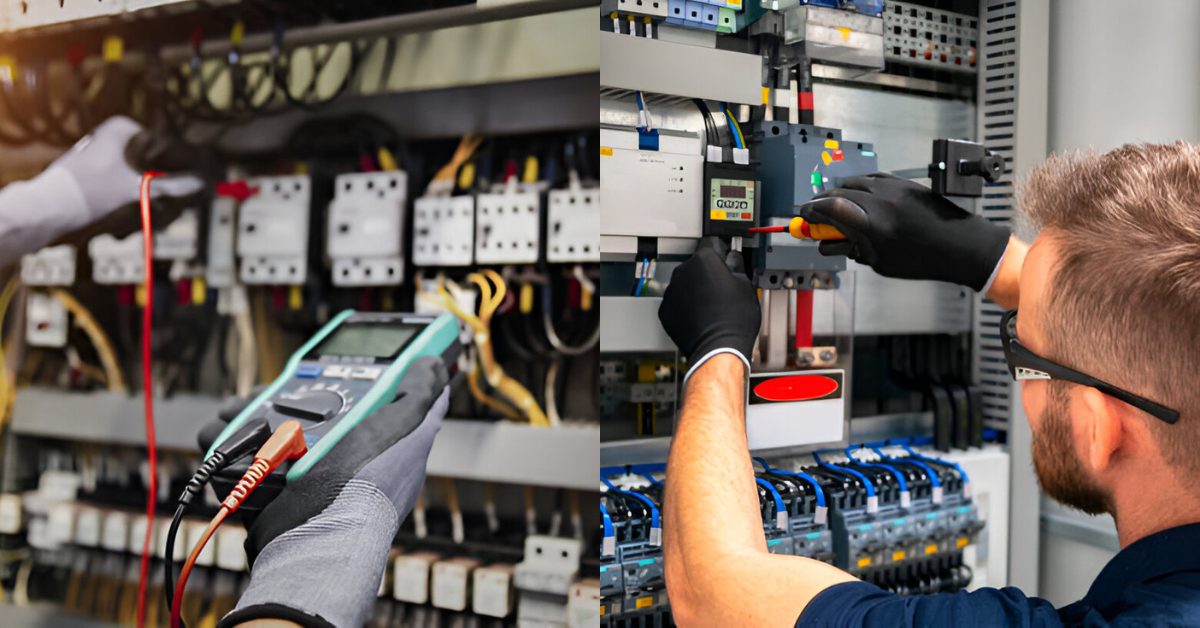
Cost of EICR Certificate vs. Potential Penalties for Non-Compliance
When property owners neglect the importance of obtaining an EICR certificate, they may face substantial penalties that far exceed the initial cost of compliance. The financial ramifications of non-compliance can be severe, ranging from fines to potential legal actions. Understanding these penalties can help weigh the cost of EICR certificate against the risks involved.
| Type of Penalty | Potential Cost | Description |
|---|---|---|
| Fine for Non-Compliance | Up to £30,000 | Imposed by local authorities. |
| Legal Costs | £1,000+ | Associated with court proceedings. |
| Insurance Complications | Varies | Denial of claims due to non-compliance. |
| Property Value Depreciation | 10-20% | Reduced marketability of the property. |
| Tenant Compensation Claims | Varies | Varies |
Ultimately, investing in an EICR certificate can save homeowners and landlords from costly consequences in the long run.
Cost of EICR Certificate for HMOs and Rental Portfolios
For landlords managing Houses in Multiple Occupation (HMOs) and rental portfolios, the cost of obtaining an Electrical Installation Condition Report (EICR) certificate is a crucial consideration. The expenses can vary considerably based on factors such as property size, location, and the complexity of the electrical systems.
Landlords should keep in mind the following cost-related aspects:
- Average Costs: EICR certificates typically range from £100 to £300 per property.
- Additional Fees: Larger properties may incur extra charges for extensive inspections.
- Frequency of Testing: HMOs require EICR checks every five years, adding to ongoing costs.
- Potential Discounts: Some electricians offer reduced rates for multiple properties, which can benefit landlords with rental portfolios.
Understanding these factors can help landlords budget effectively and maintain compliance with safety regulations.
Frequently Asked Questions
Performing an EICR oneself is not advisable due to the technical expertise required. Only qualified electricians can accurately assess safety and compliance, ensuring that all electrical systems meet necessary regulations and standards for safety.
When selecting an EICR inspector, one should consider qualifications such as being a registered electrician, possessing relevant certifications like the City & Guilds 2391, and having experience with electrical safety regulations and inspections.
The EICR inspection process typically takes between one to three hours, depending on the property size and complexity. Factors such as accessibility and the inspector’s thoroughness can also influence the overall duration of the inspection.
Financial assistance programs for EICR costs may exist, particularly for low-income households or vulnerable individuals. Local authorities and charities sometimes offer help, encouraging property safety while alleviating financial burdens associated with electrical safety inspections.
An EICR certificate can enhance property value by assuring potential buyers of electrical safety and compliance with regulations. This assurance often leads to increased buyer confidence, making properties with valid certificates more attractive in the market.
Conclusion
To sum up, understanding the cost of EICR certificate is essential for homeowners and landlords alike. By considering factors such as property size and location, individuals can make informed decisions and budget effectively for compliance. Regularly renewing the certificate not only guarantees safety but also helps avoid potential penalties associated with non-compliance. Ultimately, investing in an EICR certificate is a prudent choice that contributes to long-term property maintenance and peace of mind.
About the Author: Atia Amin
Related Posts
Get Social
Recent Posts
- Electrical Diagnostic London: How Professional Testing Keeps Your Property Safe and Compliant
- Asbestos Management Survey London: Update Your Property Records
- Gas Safety Certificate London: Why Regular Checks Save Money Long-Term
- FRA London Explained: How a Professional Fire Risk Assessment Keeps You Compliant and Safe
- When a New Tenancy Requires Your EICR Certificate London Renewal


